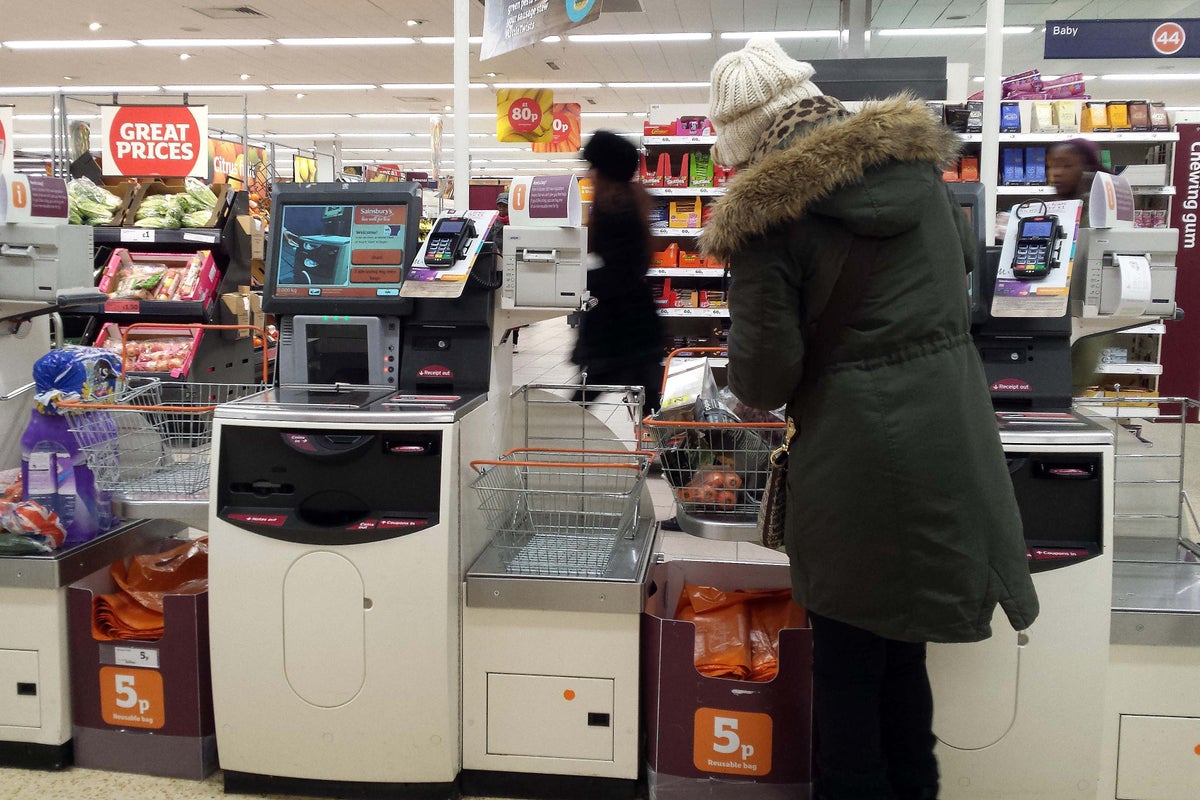
Health chiefs are warning festive shoppers to wash their hands regularly after a study found both faeces and vomit-inducing bugs - on self-service check-out screens.
The investigation, where scientists analysed swabs from several everyday objects, revealed there were thousands of bacteria on the ubiquitous payment machines.
E.coli, which causes vomiting, was present on nearly all the surfaces, while poo and microbes that lead to urinary tract infections (UTIs) were found on self-service screens.
A bug commonly found in the vagina, mouth, throat and gut called Candida albicans, which can cause yeast infections, was also discovered on an escalator handrail.
And shoppers may also be at risk if they hot desk at work, as intestinal microbes that can cause a range of infections, including UTIs, were found on computer keyboards.
Dr Adam Roberts, chief researcher with the Infection Innovation Consortium (iiCON), who produced the analysis said self-checkouts had a particularly high viral load.
He said: “The self-checkout samples had one of the highest bacterial loads, as we found five different types of potential disease-causing bacteria surviving on them.
“This included Enterococcus which is found in human faeces and, while this is usually harmless, it can of course lead to disease, particularly in those who may have weakened immune systems.
“We found multiple examples of E. coli and a bacteria called Klebsiella on computer keyboards.
“While both exist naturally in faeces and intestines, given the right environment, they are able to cause quite severe diseases in humans, so it’s vital that we wash our hands before and after eating when working at the computer.”
Dr Roberts said it was vital for shoppers to minimise the effects of this bacteria by regularly washing their hands, particularly after going to the bathroom.
He said: “It’s vital to try to minimise their effects in terms of infection prevention and control, so when we touch our mouths or go to the toilet and don’t wash our hands, we’ve likely got bacteria from these places on our hands which can then transfer to other things – and subsequently to other people.
“If those individuals are more susceptible to infection than you are, there may be a problem.”
Champs Public Health Collaborative, a Merseyside based public health partnership, has also asked shoppers to be extra vigilant and to keep washing their hands regularly.
It comes as part of a wider campaign, Simple Things, which was launched after researchers found two-thirds of people are worried about the spread of infectious diseases this winter.
The Simple Things initiative calls on people to practise four key measures to prevent the spread of winter illness.
These are hand washing, sanitising surfaces, keeping a distance when unwell and covering sneezes or coughs.
Matt Ashton, Director of Public Health for Liverpool, has urged those with vulnerable loved ones, in particular, to ensure their hands are clean before meeting them.
He said: “Our results showed that there are multiple bacteria living on objects that we touch every single day.
“These bacteria are completely invisible to the naked eye – surfaces may look clean but can be covered in bacteria.
“But there are simple things we can do to prevent the spread of them and stop the transfer completing its cycle.
“This is particularly important if you are visiting vulnerable relatives in hospitals and care homes, for example.
“Hospital admissions for illnesses like Norovirus and flu always spike at this time of year, but we can take steps to reduce how quickly germs transfer from one person to another, by simply keeping our hands clean – washing them after going to the bathroom and before and after.”







